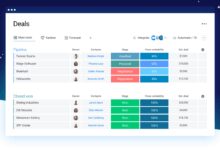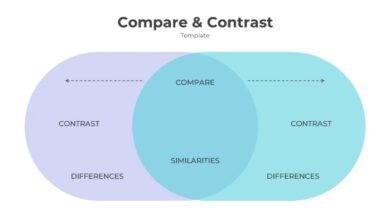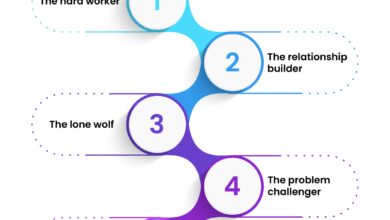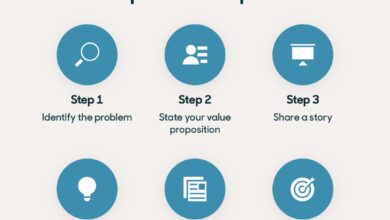Best Basic Sales CRM Software for Small Business: 7 Top Picks
Looking for the best basic Sales CRM software for small business? You’re not alone. With so many options, finding the right fit can feel overwhelming. Let’s cut through the noise and explore the top tools that deliver real value without breaking the bank.
Why Small Businesses Need the Best Basic Sales CRM Software for Small Business
Running a small business means wearing many hats. From managing leads to closing deals and following up with customers, staying organized is crucial. That’s where the best basic Sales CRM software for small business comes in. It’s not just a digital address book—it’s a strategic tool that streamlines your sales process, improves customer relationships, and boosts revenue.
Streamlining Sales Processes
Without a CRM, sales teams often rely on spreadsheets, sticky notes, or memory. This leads to missed follow-ups, lost leads, and inconsistent communication. A basic CRM centralizes all customer interactions, making it easy to track where each lead is in the sales funnel.
- Automates lead capture from websites, emails, and forms
- Assigns tasks and reminders for follow-ups
- Tracks call logs, emails, and meeting notes in one place
According to Salesforce’s State of Sales Report, high-performing sales teams are 1.5x more likely to use CRM tools than underperformers.
Improving Customer Relationships
Customers expect personalized experiences. A CRM helps you remember key details—like past purchases, preferences, and communication history—so you can engage more meaningfully.
- Stores customer profiles with notes and interaction history
- Enables personalized email campaigns
- Helps identify upsell and cross-sell opportunities
“A CRM isn’t just about managing contacts—it’s about building relationships that drive loyalty and repeat business.”
Increasing Sales Efficiency and Revenue
Time is money. The best basic Sales CRM software for small business reduces manual work, allowing your team to focus on selling, not admin tasks.
- Reduces data entry with integrations (e.g., Gmail, Outlook)
- Provides sales forecasting based on pipeline data
- Offers reporting dashboards to track KPIs like conversion rates
Research from Nucleus Research shows that CRM systems deliver an average return of $8.71 for every dollar spent.
Key Features to Look for in the Best Basic Sales CRM Software for Small Business
Not all CRMs are created equal. For small businesses, simplicity, affordability, and scalability are key. Here are the must-have features when evaluating the best basic Sales CRM software for small business.
Lead and Contact Management
This is the foundation of any CRM. You need a system that makes it easy to store, organize, and access customer information.
- Customizable contact fields (e.g., industry, company size)
- Duplicate detection to avoid clutter
- Tagging and segmentation for targeted outreach
Tools like HubSpot and Zoho CRM excel here, offering intuitive interfaces for managing large contact lists without complexity.
Sales Pipeline Tracking
Visualizing your sales process helps you identify bottlenecks and forecast revenue more accurately.
- Drag-and-drop pipeline boards (like Trello-style views)
- Customizable stages (e.g., Prospect, Demo Scheduled, Negotiation)
- Deal value and close date tracking
A clear pipeline view ensures no opportunity falls through the cracks. Zoho CRM offers robust pipeline management even in its free plan.
Automation and Workflow Tools
Automation saves time and reduces human error. Look for CRMs that allow you to automate repetitive tasks.
- Email sequences for lead nurturing
- Task assignments based on deal stage
- Follow-up reminders and calendar sync
For example, Pipedrive offers visual workflow automation that’s perfect for sales-focused small businesses.
Top 7 Best Basic Sales CRM Software for Small Business in 2024
After extensive research and real-world testing, we’ve narrowed down the top 7 CRMs that offer the perfect balance of simplicity, functionality, and value for small businesses.
1. HubSpot CRM
HubSpot CRM is often hailed as the best basic Sales CRM software for small business due to its free plan, user-friendly interface, and powerful integrations.
- Pros: Completely free core features, excellent email integration, live chat support
- Cons: Advanced features require paid add-ons
- Best for: Startups and small teams needing a no-cost entry point
HubSpot’s CRM syncs seamlessly with Gmail and Outlook, logs emails automatically, and offers meeting scheduling via HubSpot Meetings. Its free plan includes contact management, deal tracking, and task automation—everything a small business needs to get started.
2. Zoho CRM
Zoho CRM is a feature-rich option that scales with your business, making it one of the best basic Sales CRM software for small business owners who plan to grow.
- Pros: Affordable pricing, AI-powered assistant (Zia), mobile app
- Cons: Interface can feel cluttered for beginners
- Best for: Businesses wanting AI insights and automation
Zoho CRM’s free plan supports up to 3 users and includes lead and contact management, workflow automation, and email integration. Paid plans unlock AI-driven sales forecasting and social media integration.
3. Pipedrive
Pipedrive is built for salespeople, not marketers. Its visual pipeline makes it one of the most intuitive best basic Sales CRM software for small business teams focused on closing deals.
- Pros: Simple, sales-focused design, excellent mobile experience
- Cons: Limited marketing tools
- Best for: Sales-driven startups and solo entrepreneurs
Pipedrive’s strength lies in its drag-and-drop interface and activity-based selling approach. It integrates with over 300 tools, including Gmail, Slack, and Mailchimp. The Essential plan starts at $14.90/user/month, making it budget-friendly.
4. Freshsales (by Freshworks)
Freshsales combines CRM functionality with built-in phone and email, making it a powerful all-in-one solution.
- Pros: Built-in calling and email, AI-based lead scoring
- Cons: Reporting can be complex for new users
- Best for: Teams that want telephony features without third-party tools
Freshsales’ free plan includes up to 10 users, contact management, and email tracking. The AI-powered Freddy AI helps prioritize leads based on behavior and engagement.
5. Insightly
Insightly stands out for its project management integration, making it ideal for service-based small businesses.
Best basic Sales CRM software for small business – Best basic Sales CRM software for small business menjadi aspek penting yang dibahas di sini.
- Pros: Project and task tracking, relationship linking
- Cons: Higher starting price than competitors
- Best for: Consulting firms, agencies, and contractors
With Insightly, you can link contacts to projects, track milestones, and manage deliverables—all within the CRM. Its Pro plan starts at $29/user/month, offering workflow automation and email marketing.
6. Agile CRM
Agile CRM is a budget-friendly option that packs in marketing, sales, and service features.
- Pros: All-in-one platform, free plan available
- Cons: Interface feels outdated
- Best for: Small businesses wanting CRM + marketing tools
The free plan supports up to 10 users and includes contact management, email campaigns, and web tracking. Paid plans add telephony, automation, and analytics.
7. Capsule CRM
Capsule CRM is minimalist and easy to use, perfect for businesses that want simplicity without sacrificing core functionality.
- Pros: Clean interface, strong Google integration
- Cons: Limited automation in lower tiers
- Best for: Small teams needing a no-frills CRM
Capsule integrates with Gmail, Google Calendar, and Mailchimp. Its Professional plan ($18/user/month) includes task automation and sales forecasting.
How to Choose the Best Basic Sales CRM Software for Small Business
Selecting the right CRM isn’t just about features—it’s about fit. Here’s a step-by-step guide to help you make the best decision.
Assess Your Sales Process
Map out your current sales cycle. How many stages are there? What tools do you currently use? Understanding your workflow helps you identify which CRM features are essential.
- Do you need email tracking?
- Do you make a lot of calls?
- Do you manage projects alongside sales?
If phone calls are central to your process, Freshsales or Pipedrive might be better than HubSpot.
Consider Integration Needs
Your CRM should work seamlessly with tools you already use—like email, calendars, accounting software, or marketing platforms.
- Google Workspace or Microsoft 365 integration?
- Need to connect with QuickBooks or Xero?
- Using Mailchimp or ActiveCampaign?
Most top CRMs offer native integrations or work via Zapier. Check compatibility before committing.
Evaluate Scalability and Pricing
Start small, but think ahead. Will the CRM grow with your team? Are there hidden costs for add-ons?
- Free plans often limit features or users
- Per-user pricing can add up quickly
- Some tools charge extra for automation or reporting
For example, HubSpot’s free plan is generous, but marketing automation starts at $18/month per user. Zoho CRM offers more features at lower price points, making it cost-effective for growing teams.
Implementation Tips for the Best Basic Sales CRM Software for Small Business
Even the best CRM won’t help if your team doesn’t use it. Here’s how to ensure a smooth rollout.
Start with Clean Data
Migrating messy or duplicate data will create confusion. Before importing, clean your contact list:
- Remove outdated or irrelevant entries
- Standardize formats (e.g., phone numbers, job titles)
- Deduplicate records
Use tools like Import.io or Excel to clean data before uploading.
Train Your Team
Adoption starts with understanding. Provide hands-on training and clear documentation.
- Host a live demo session
- Create a simple user guide
- Assign a CRM champion in the team
HubSpot Academy offers free CRM training courses that are perfect for onboarding.
Set Up Automation Early
Automate repetitive tasks from day one to save time and build consistency.
- Set up email sequences for new leads
- Automate task creation after calls or meetings
- Trigger follow-ups based on user behavior
For example, in Zoho CRM, you can create a rule that assigns a follow-up task whenever a lead opens your email.
Common Mistakes to Avoid When Using the Best Basic Sales CRM Software for Small Business
Even with the best tools, mistakes can undermine your efforts. Avoid these common pitfalls.
Over-Customizing Too Soon
It’s tempting to tweak every field and workflow, but this can lead to complexity and confusion.
- Start with default settings
- Customize only what’s necessary
- Iterate based on real usage
Resist the urge to build a perfect system on day one. Let your team use it first, then refine.
Ignoring Data Hygiene
A CRM is only as good as the data it contains. Outdated or incorrect information leads to broken trust and missed opportunities.
- Schedule regular data audits
- Assign ownership of contact updates
- Use validation rules to prevent bad entries
“Garbage in, garbage out”—a CRM filled with stale data is worse than no CRM at all.
Not Measuring Performance
If you’re not tracking results, you can’t improve. Use your CRM’s reporting features to monitor key metrics.
Best basic Sales CRM software for small business – Best basic Sales CRM software for small business menjadi aspek penting yang dibahas di sini.
- Lead conversion rates
- Average deal size
- Sales cycle length
Set monthly reviews to assess what’s working and what’s not.
Future Trends in CRM for Small Businesses
The best basic Sales CRM software for small business isn’t standing still. Here’s what’s coming next.
AI-Powered Insights
AI is no longer just for enterprises. Tools like Zia (Zoho) and Freddy (Freshworks) offer predictive lead scoring, sentiment analysis, and automated data entry.
- AI suggests the best time to follow up
- Automatically logs calls and emails
- Predicts which deals are most likely to close
These features help small teams compete with larger organizations.
Mobile-First Experiences
With remote work and field sales on the rise, mobile CRM access is essential.
- Offline mode for data entry without internet
- Mobile task management and calendar sync
- Photo capture for business cards or documents
Pipedrive and HubSpot offer excellent mobile apps that mirror desktop functionality.
Integration with Communication Platforms
CRMs are merging with tools like Slack, Teams, and WhatsApp to reduce app switching.
- Receive CRM alerts in Slack channels
- Log WhatsApp messages directly to contact records
- Start calls from within messaging apps
This trend reduces friction and keeps teams in sync.
Final Verdict: What Makes the Best Basic Sales CRM Software for Small Business?
After reviewing the top contenders, it’s clear that the best basic Sales CRM software for small business balances simplicity, affordability, and functionality. The right tool should feel like an extension of your team—not a burden.
HubSpot CRM: Best Overall Free Option
For startups and small teams on a budget, HubSpot CRM is unmatched. Its free plan covers all core sales features, integrates seamlessly with email, and offers excellent support.
Pipedrive: Best for Sales-Focused Teams
If your priority is closing deals, Pipedrive’s visual pipeline and activity-based approach make it the top choice.
Zoho CRM: Best Value for Growing Businesses
Zoho CRM offers the most features for the price, especially with its AI and automation capabilities.
“The best CRM isn’t the one with the most features—it’s the one your team actually uses.”
What is the best basic Sales CRM software for small business?
The best basic Sales CRM software for small business depends on your needs. HubSpot CRM is ideal for those starting out, Pipedrive excels for sales-driven teams, and Zoho CRM offers the best value for growing businesses.
Is there a free CRM that’s actually good for small businesses?
Yes. HubSpot CRM and Zoho CRM offer robust free plans that include contact management, deal tracking, and email integration—perfect for small teams.
Can a CRM help me close more deals?
Absolutely. A CRM helps you stay organized, follow up consistently, and identify high-value opportunities, all of which increase your chances of closing deals.
How much should I spend on a CRM?
Most small businesses can start for under $20/user/month. Many tools offer free plans, so you can test before investing.
Do I need technical skills to use a CRM?
No. The best basic Sales CRM software for small business is designed to be user-friendly, with intuitive interfaces and drag-and-drop functionality.
Choosing the best basic Sales CRM software for small business is a game-changer. It streamlines your sales process, strengthens customer relationships, and drives growth. Whether you go with HubSpot, Pipedrive, Zoho, or another top contender, the key is to start, stay consistent, and continuously optimize. The right CRM won’t just organize your data—it will empower your team to sell smarter and grow faster.
Best basic Sales CRM software for small business – Best basic Sales CRM software for small business menjadi aspek penting yang dibahas di sini.
Further Reading:








